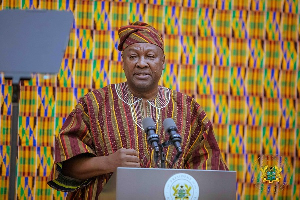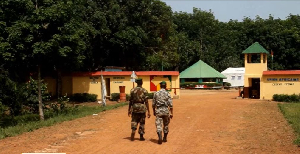By Sydney Casely-Hayford, Sydney@bizghana.com
This year our budget must center on whether we can raise sufficient revenue to cover our full expenditures and not rely on donor support to shore up our politically generated deficit gap. In finance parlance, we must cut the deficit budgeting this time round and look to growth measures and increase taxes to meet our expenditures. It means tackling the tax base confidently and that should include the informal sector.
In the 2011 budget we planned some bold measures to ensure growth and revenue mobilization and throughout the year Government has announced better than planned revenues. It has not made, as much noise about the expenditure overruns and not all the Single Spine implementation is complete. The big one, Teachers and second largest Health are yet to be included.
In the 2011 budget we estimated revenue of ghc10.6billion. In August 2011 it was supplemented by another ghc1.4billion, making total expected budget revenue ghc12billion. Expenditure increased from ghc12.6billion initially and supplementary was ghc900million. Our overspend (budget gap) is ghc1.5billion, which we couch as infrastructure needs, but it really is not.
Every November the Government budgets a wish list. The remainder of the year is used to make excuses about how we do not have enough resources to meet the demands from the electorate who have been promised the goodies.
If you analyse the expenditure lines, you notice we are in still the same bind. Over 70% of the revenue goes to payroll and related expenses. Our needs and resources are clearly out of step with each other. We have to find another 12.5% of current revenue to cover the shortfall.
We do not have enough resources to solve our problems. We are still among the poorest countries in the world despite oil and gas discovery. We do not have enough skilled resources and there is no indication that we are training enough graduates to step into skilled jobs. Bank borrowing rates are too high, stifling business growth; and market confidence is eroding despite all the touted macro economic stability. The economy is not expanding enough to create markets for suppliers to sell.
To crown it all Tullow Oil Plc, the London-based explorer with the most licenses in Africa, says, (2nd November Bloomberg) it will delay ramp up of its Jubilee field into next year because the wells are underperforming. The Jubilee field, Tullow’s largest project, is pumping about 85,000 barrels of oil a day, 20,000 barrels less than expected, and will reach the planned 120,000 barrel-a-day plateau for phase one next year, that’s more than four months later than planned. Last year Government budgeted for 75,000 barrels a day.
But, Finance Minister Kwabena Duffuor is upbeat about all this. He assures in an interview with the press that there will be no spending spree in the 2012 election year and we will continue with fiscal consolidation. Yet the IMF in its fifth review of Ghana’s economy brings this sharp reminder into focus; the excesses in 2008, the pending increases in the single spine adjustments and utility tariff adjustments.
Most of the ideas and expectations are dependent on our ability to follow through and implement programs. But the revenue is not there. Government has to consider increasing the taxable base and figure a way to tax the informal sector better. We are not planning with enough money in hand. If Government disciplined itself and implemented the twenty-four resource mobilization initiatives it planned for the 2011 budget, we could succeed.
What feels just and proper to do is the opposite of what is required for a just and fair outcome. On the top of the list of just and proper is decentralization. Every year we budget for this and every year we don’t move the process forward to completion. The environment, the potholes, street lights, local market development. These visible progress indicators elude us year after year. Insufficient revenue.
Longer term, the trap is created by resistance to higher taxes and reduced benefits necessary to get us to financial stability. The resistance is understandable, but given how weak our income base is and has been in the past decade, it is not sustainable to continue to disguise ourselves in a cloak of social democracy.
Jobs growth through LESDEP, NYEP and Eco Brigade are not the solution to our problems because they are another cloak for social Intervention programs carved for political advantage and if they are not that, it is too little, too frivolous. We have National Vocational Institutes, Teacher Training Colleges, Nurses Colleges and a whole host of institutions crying for basic support in infrastructure. Creating new politically motivated institutions do not solve the problems. And each of these new ideas attracts their own staffing and corruption.
Really what it is, Government comes to Parliament every year, presents a budget it has no hope of implementing fully and come the following year does not bother to give us a full and true accounting so we the people can judge better what we have been told. We create the budget for political points when we should be resolving the visible signs of poverty around us.
Opinions of Monday, 7 November 2011
Columnist: Casely-Hayford, Sydney














